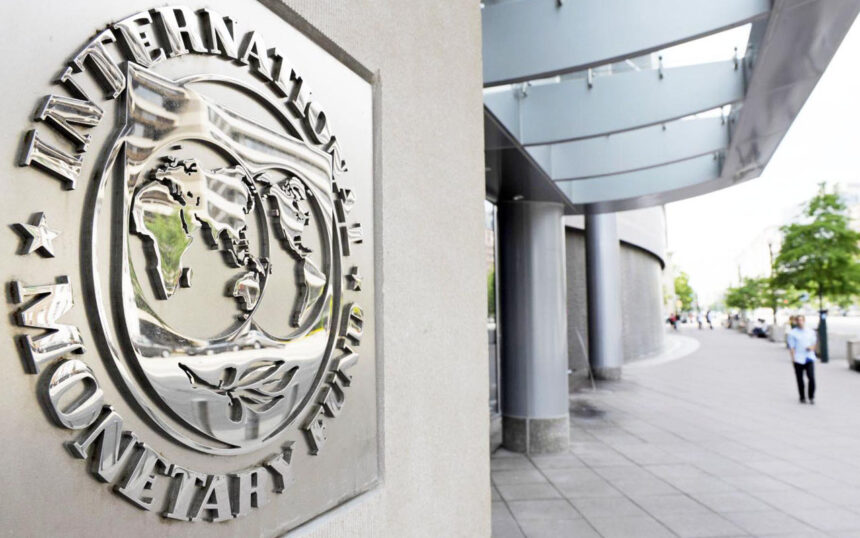A new report by the International Monetary Fund (IMF) has exposed persistent and significant errors in Nigeria’s fiscal forecasting between 2011 and 2023, raising serious concerns over the credibility of the country’s budgeting process and its effectiveness as a tool for economic policy.
The report, titled “Fiscal Forecasting Errors in Nigeria,” highlights a pattern of excessive optimism in both revenue and expenditure projections by Nigerian budget planners. According to the IMF, these systemic inaccuracies have undermined the usefulness of the national budget in guiding fiscal decisions and policy formulation.
The report finds that Nigerian authorities overestimated government revenues by an average of 1.8 percent of GDP annually—roughly 36 percent above actual collections. The main culprit, the IMF says, is overly optimistic oil production forecasts. Despite setting conservative price benchmarks, Nigeria missed its oil production targets in 11 out of the 13 years reviewed.
Forecast errors in oil revenues averaged 1.1 percent of GDP—equivalent to 61 percent of actual oil earnings during the period—largely due to technical issues, oil theft, pipeline vandalism, and illegal bunkering.
While non-oil revenues such as VAT and corporate income tax showed more accuracy, customs revenue forecasts were also consistently overestimated, with leakages and administrative inefficiencies cited as contributing factors.
Unaccounted fuel subsidies worsened the situation. In 2021 and 2022, large implicit subsidies, deducted from oil revenues without being reflected in budget documents, further distorted the revenue picture.
On the spending side, the IMF found that Nigeria’s budgeted expenditures were also marked by persistent forecasting errors. Total federal government expenditure was overestimated by 0.8% of GDP annually on average between 2011 and 2023, with the gap widening in recent years.
Capital expenditures were the most affected. The report states that budgeted capital spending was consistently higher than actual execution—by more than 70% on average. This mismatch, the IMF says, is a clear sign of “systematic optimism bias” in Nigeria’s budgeting.
In contrast, recurrent expenditure forecasts were relatively more accurate, as the government focused on restraining recurrent spending amid declining revenues.
Interestingly, fiscal deficit forecasts were not as far off the mark. But the IMF warns this is misleading. The smaller-than-expected gap was not due to improved revenue, but rather because budgeted spending was under-implemented.
During the 2017–2021 period, when forecasting errors peaked, Nigeria resorted to heavy borrowing from the Central Bank via “Ways and Means” financing—raising inflation concerns and highlighting the dangers of unrealistic budget planning.
To address these systemic issues, the IMF has proposed five key reforms aimed at restoring budget credibility and improving fiscal policy execution: Strengthen forecasting capacity: Position macro-fiscal units as equal partners within the Ministry of Finance and provide them with the authority and resources to generate credible forecasts; Improve inter-agency coordination: Establish formal data-sharing agreements among relevant fiscal bodies to ensure timely and accurate data flows; Invest in training and tools: Equip forecasting staff with modern tools and training aligned with their roles and responsibilities ; Publish forecast reviews: Regularly conduct and publish internal and external reviews of budget forecasts to enhance transparency and accountability;Enhance political commitment: Conduct periodic reviews of forecasts and policy impacts, possibly with oversight from external bodies like the Fiscal Responsibility Council, to reduce political interference in the forecasting process.
The IMF concludes that persistent forecasting errors threaten Nigeria’s economic stability by straining public finances, raising debt risks, and eroding investor confidence. “Accurate budget forecasts ensure that the government makes budget choices that are consistent with its economic policy priorities and set MDAs up to deliver on these priorities,” the report stated.
As Nigeria continues to face economic headwinds, the call for credible, data-driven fiscal planning has never been more urgent.
READ ALSO: Nigeria must spend wisely amidst pressing needs — IMF
WATCH TOP VIDEOS FROM NIGERIAN TRIBUNE TV
- Let’s Talk About SELF-AWARENESS
- Is Your Confidence Mistaken for Pride? Let’s talk about it
- Is Etiquette About Perfection…Or Just Not Being Rude?
- Top Psychologist Reveal 3 Signs You’re Struggling With Imposter Syndrome
- Do You Pick Up Work-Related Calls at Midnight or Never? Let’s Talk About Boundaries







